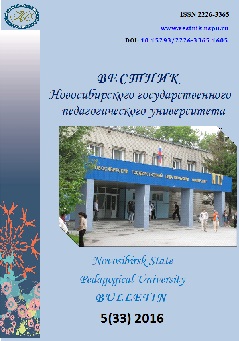Личностные ресурсы обеспечения самоэффективности украинских студентов
The role of personality resources in cultivating
self-efficacy in Ukrainian students
Author(s): Yurii Vladimirovich Pelekh, Nataliia Vladimirovna OksentiukSubject(s): Higher Education , Personality Psychology, Sociology of Education
Published by: Новосибирский государственный педагогический университет
Keywords: Self-efficacy; personality positive traits; psychological well-being; academic performance; students
Summary/Abstract: The present article studies personality positive traits which are considered as Ukrainian youth’s personality resources that provide their self-efficacy. The theoretical and methodologi-cal basis of the research is the principles of positive psychology (R. Baer, M. Seligman, C. Pe-terson, C. Ryff, E. L. Nosenko) and the theory of self-efficacy (A. Bandura). The research was realized on the selection of the first year students aged 17-19. Two aspects of self-efficacy were analyzed: personal and interpersonal (psychological well-being) and social and professional (academic performance). The indices of Ukrainian youth’s self-efficacy demonstrate certain de-ficiency in both the sphere of psychological well-being and the sphere of social and professional realization. The research clarifies that psychological well-being and academic performance re-ly on different personal resources which provide their functioning. Personal resources to ensure self-efficacy in the subjective (mental) well-being of a high level of skills and personality traits that go beyond self-interest and contain a balance between self-worth, the ability to be them-selves (courage) and the value of the partnership (humanity) and the world at large (transcendence). Personal resources to ensure self-efficacy in social and professional development is a subjective internal locus of control and development of the sphere of interpersonal self-regulation. The authors define the structure of Ukrainian youth’s self-efficacy which includes three components: “Personal growth”, that combines features of mature personality which are the basis for the attainment of integrity and meaningfulness of life, that is psychological well-being; "Interpersonal self-regulation", which brings together focus on interpersonal interaction and the ability to self-regulation; "Personal responsibility", which indicates that the efficiency of the individual in the social and professional field implementation is possible under the condition of development of internal locus of control and self-regulation areas.
Journal: Вестник Новосибирского государственного педагогического университета
- Issue Year: 6/2016
- Issue No: 5
- Page Range: 64-87
- Page Count: 24
- Language: Russian

